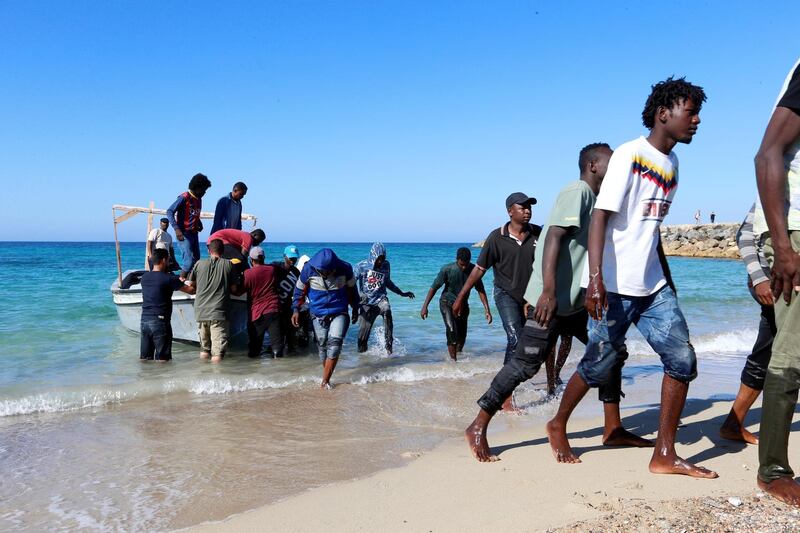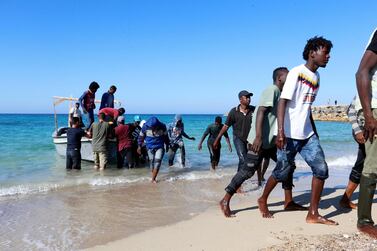Migrants say they would rather die at sea than go back to Libya, after their crowded boat capsized near Lampedusa, Italy, on Saturday.
The Italian coastguard pulled 149 people to safety but there were fears that at least two people were missing.
The coastguard said the rescue, before sunset, involved four of its motorboats and two rescue divers.
It took place about 2 kilometres from Lampedusa, an island south of Sicily.
The coastguard said those rescued, who included three children and 13 women, were taken to Lampedusa's port.
Two of those rescued, a Libyan and an Ethiopian, told authorities their wives weren’t among them, prompting fears the two women were missing offshore.
Italian news agency Ansa said migrants told authorities there were 169 passengers when their boat set out.
The bodies of five migrant women, two of them washed ashore, were recovered onSunday, the Italian coastguard said, as search efforts continued in rough seas for another dozen people.
Three of the bodies were retrieved from the sea, where waves as high as 3 metres complicated the coastguard search by boat and helicopter.
Five bodies had been brought ashore by mid-day.
Survivors included a baby, aged 1, two children whose parents could not immediately be found among survivors, and 13 women.
Often, those aboard traffickers’ boats in distress call for help but this time no such request was made, the coastguard said.
It said the agency was alerted by a citizen.
Two fishermen who said bad weather kept their fleet from going out to sea on Saturday saw the migrants' struggling fishing boat.
Hundreds of thousands of migrants have set out in recent years on decrepit fishing boats and flimsy rubber dinghies launched by Libyan traffickers.
Ibrahim Owolabi, from Togo, and his wife and child were plucked from the sea by rescuers last week.
They had been drifting almost 100km off the Libyan coast for nearly 24 hours.
After leaving Nigeria, the family arrived in Libya where they worked in odd jobs for two years to try to save the US$1,300 needed to pay for the crossing.
"You work for them, they don't pay the money, that's why we decided to leave Libya," Mr Owolabi said.
"We can't live our life like that with my son. I just want to keep my kid safe, that's why I left.
"I wanted to come to Europe. It wasn't easy while I was on the water. if I must die on the water, it is better than returning to Libya."
The Libyan National Army, led by Field Marshal Khalifa Haftar, has seized much of eastern Libya from militants in recent years, and is now fighting for control of Tripoli.
The LNA shot down a US military drone over the capital by mistake last week.
The US military said it lost the drone on Thursday while it was assessing the security situation and monitoring extremists.
The country was plunged into chaos when a Nato-backed uprising toppled longtime dictator Muammar Qaddafi in 2011.






